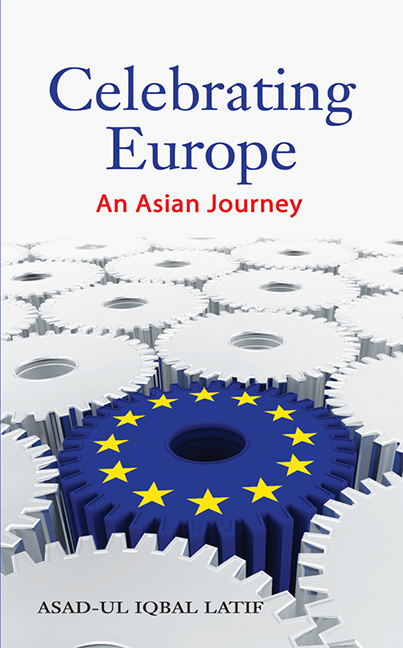Book contents
- Frontmatter
- Dedication
- Contents
- Foreword
- Acknowledgements
- Introduction: Europe
- 1 Europe Abroad
- 2 Gentiles
- 3 The Berlin Wall
- 4 Soviets of the Mind
- 5 The Secular Soul
- 6 The Leopard's Italy
- 7 England
- 8 Champagne France
- 9 Two Bengali Greeks
- 10 The Polish Hospital
- 11 Postmodern Europe
- Bibliography
- Index
- About the Author
Foreword
Published online by Cambridge University Press: 21 October 2015
- Frontmatter
- Dedication
- Contents
- Foreword
- Acknowledgements
- Introduction: Europe
- 1 Europe Abroad
- 2 Gentiles
- 3 The Berlin Wall
- 4 Soviets of the Mind
- 5 The Secular Soul
- 6 The Leopard's Italy
- 7 England
- 8 Champagne France
- 9 Two Bengali Greeks
- 10 The Polish Hospital
- 11 Postmodern Europe
- Bibliography
- Index
- About the Author
Summary
Although there is a tendency among some analysts to dismiss Europe as a “has-been”, the world in which we live is still shaped by ideas emanating from Europe. This is why it is important for us to augment our knowledge of Europe's contribution to civilization. This effort will enable us to borrow and use facets of the European experience and transform them into building blocks around the world. Perhaps even the Europeans could take heart and gain courage by looking at their own past!
The European Union is today buffeted by a financial storm never seen in its history. However, Europe's past tells Europeans that, even though they are struggling to overcome a calamitous economic situation, there is no reason for despair. The “old continent” has overcome worse challenges and has come out stronger and more mature. Indeed, it has been purified by threats that were directed at the plinth of what Europe stands for. Well-wishers of Europe hope that its union will endure and prove to be a permanent contribution to world peace.
Seen from the outside, Europe is vast collection of nation-states, regions, some reminiscences from the past, and, of course, the European Union, which encompasses 27 countries. However, Europe is more than the European Union. European ideals, cultivated over centuries, have benefited from diversity, the continent's great strength.
The European Union has tried to define what it stands for. I quote from its proposed Constitution: “The Union is founded on the values of respect for human dignity, freedom, democracy, equality, the rule of law and respect for human rights, including the rights of persons belonging to minorities. These values are common to the Member States in a society in which pluralism, non-discrimination, tolerance, justice, solidarity and equality between women and men prevail.”
These principles are a valuable contribution to the making of a better world. Europe today offers a mixture of political freedom, respect for human rights, and a genuine wish to find solutions to global problems such as global warming and poverty.
- Type
- Chapter
- Information
- Celebrating EuropeAn Asian Journey, pp. ix - xiiPublisher: ISEAS–Yusof Ishak InstitutePrint publication year: 2012

